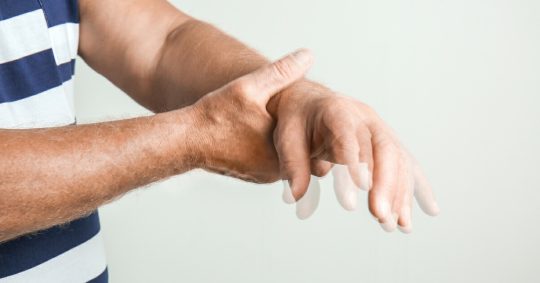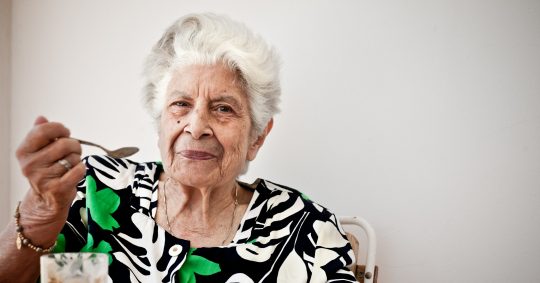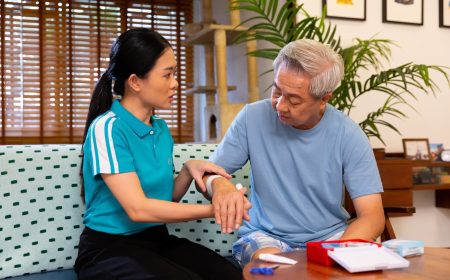Parkinson’s Disease is a neurological condition that is degenerative - there is no cure for Parkinson’s and the symptoms progressively become more debilitating in the later years. As seniors with Parkinson’s become more dependent on their loved ones for help with daily activities, caregivers may face the risk of physical and emotional burnout from their duties.
To avoid this, caregivers can find help through professional services that can ease the caregiving load and also optimise your loved ones’ potential to continue to enjoy quality of life.

Parkinson’s Disease affects three in every 1,000 Singaporeans aged 50 and above.
Learn all about it in this article, or jump to the following sections:
Care solutions for all stages of Parkinson’s Disease
Caregivers often have to put their own lives on hold to care for their loved ones full time. It can be a lonely and isolating experience, especially if you don't have help from other family members. That's why it's important to reach out for help when you need it.
NTUC Health has a suite of professional caregiving services to help seniors with Parkinson's live well and manage their symptoms through the different stages of the disease. Our care staff are specially trained to provide personalised care and support, so you can be assured that your loved one is in good hands.
Centre-based Day Care
In the early to mid stages of Parkinson’s, patients experience mild symptoms such as stiff trunk muscles, or have a slight tremor and slowness of movement. They may also take a longer time to move about and complete daily activities like bathing, changing clothes and preparing food.
As a caregiver, you may be worried to leave your elderly loved ones unattended during the day while you are at work. NTUC Health’s Senior Day Care programme offers centre-based day care to look after your loved one’s essential needs, including help with toileting, feeding, and moving about.
They can also look forward to some of these fun and engaging activities to stay socially connected and active:
- art and crafts, games
- daily exercises
- festive celebrations
- recreational programmes such as inter-generational activities with children
Visit our Senior Day Care page to learn about our services and fees, or drop us an enquiry with the form within the page.
Home-based Care
As the disease progresses to its middle and late stages, seniors with Parkinson’s experience problems with balance and falls are more common, eventually to the point where they require assistive devices such as walking canes or wheelchairs. Their movement may become limited by stiffness of the body and they may require support to complete daily activities like dressing, moving about, toileting and showering.
With support from NTUC Health’s Home Care services, seniors with Parkinson's can continue to receive professional care at home, especially if they are unable to leave the house due to lack of wheelchair access or lifts at their home level.
Our Care Associates can visit your loved one’s home to attend to their daily needs, such as showering or meals, while our doctors and therapists can provide medical attention and therapy to manage their condition. Our private nurses and nurse associates are also able to visit to support Parkinson’s patients with tube feeding, wound management and administering of medication.
Visit our Home Care page to learn about our services and fees, or drop us an enquiry with the form within the page.
Round-the-clock care
In the advanced stages of Parkinson's disease, patients may require full-time help, especially if they are wheelchair bound or bedbound and require tube feeding. When caregivers are unable to cope with the needs of their loved ones, specialised nursing care in a dedicated facility may be required on a full-time basis to ensure safety and comfort of the patient. NTUC Health’s nursing homes support such seniors with round-the-clock and personalised long-term care so that they can get the attention they need.
Visit our Nursing Home page to learn about our services and fees, or drop us an enquiry with the form within the page.

Seniors with motor symptoms such as tremors and rigidity, may find it difficult to feed or care for themselves as the condition progresses.
Rehabilitation and therapy for managing Parkinson’s symptoms
Not all Parkinson’s patients have the same set of symptoms, and the treatment for Parkinson’s Disease differs from patient to patient. However, rehabilitation and therapy is key to managing motor symptoms of Tremors, Rigidity, Absence/slowness of movement and Postural instability (T.R.A.P.) that are common in most Parkinson’s patients.
Aside from medication, rehabilitation and therapy can help seniors with Parkinson’s in the following ways:
Physiotherapy helps to strengthen muscles and improve joint range and mobility through prescribed exercise and education from the start of diagnosis. Patients can work towards managing pain in the body and better balance for minimising falls, which occur in 45-68% of people with Parkinson’s². Learn more about our physiotherapy services.
Occupational therapy is essential for patients to help them learn how to use assistive devices such as wheelchairs. Occupational therapy can also help persons with Parkinson’s Disease stay independent for as long as possible by learning techniques to carry out daily chores and self-care. Occupational therapists can also recommend modifications to the home, such as grab rails for support and ramps that will help wheelchair-bound patients move about their home and community. Learn more about our occupational therapy services.
Speech therapy aims to help patients manage symptoms such as slurring and a softer volume in their voice, so that they can communicate with their loved ones in alternative ways. By exercising the face and throat muscles for swallowing, patients may also be able to work on swallowing food and drink safely. Learn more about our speech therapy services.
NTUC Health’s Physiotherapy and Rehabilitation services are available at our Day Centres for Seniors and also in the comfort of home. Seniors who have been admitted to our nursing homes may also be suitable for therapy to manage their Parkinson’s symptoms. Speak to us to find out how we can help by dropping an enquiry on our Physiotherapy and Rehabilitation page.

Remember to be patient with yourself and your loved one throughout the caregiving journey.
Summary
There will be days when caring for a loved one with Parkinson’s becomes hard to manage on your own. Get professional help with our
or seek respite care to take a break and recharge. If you are interested in any of our services, drop us an enquiry today.

